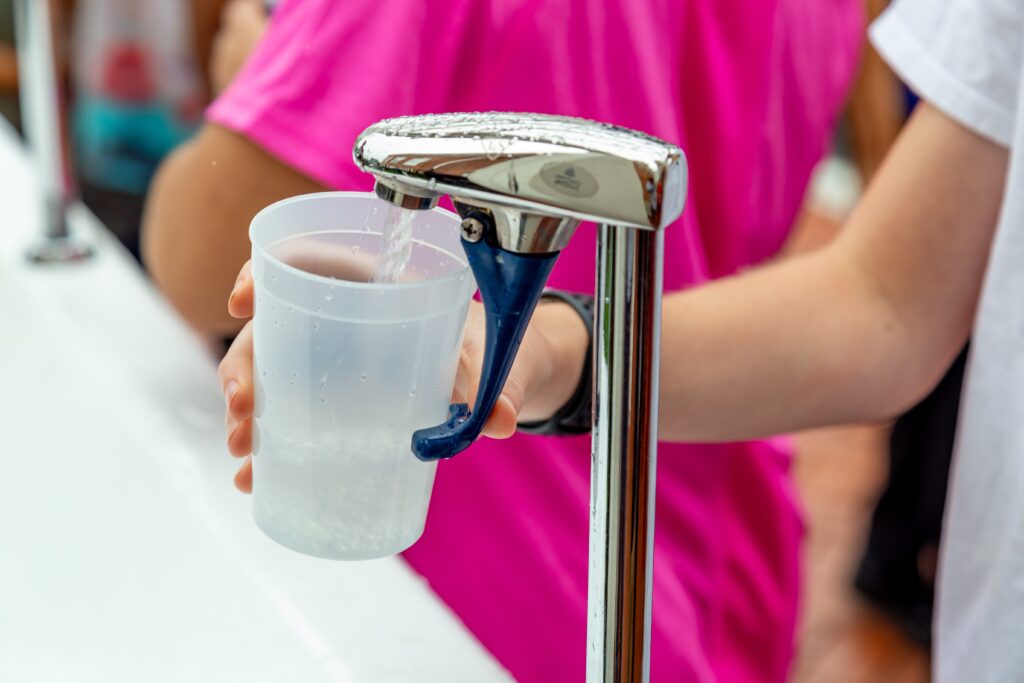This year, heat waves have already hit multiple states and are forecasted to continue. Seniors are particularly vulnerable to high temperatures and need to stay properly hydrated. Whether you are a senior or you are a younger person who is caring for an older adult, here’s what you should know about the role hydration plays in older adults.
Why It’s More Important for Seniors to Stay Hydrated
Older people are more prone to heat stress than younger people. This is because their bodies do not adjust as proficiently to temperature changes. They are also more exposed to certain medications that can cause them to sweat more. Older adults have a higher likelihood of having one or more medical conditions that impact the way their bodies respond to heat. Because of these factors, older adults need to stay hydrated to not submit to heat stress.
Why Seniors Don’t Consume Enough Water
If you’re concerned about a loved elderly staying hydrated, you probably have good reason to be. Dehydration in seniors is often common for many reasons. Many seniors don’t drink as much water due to their reduced sense of thirst, limited mobility, health conditions, and medication implications. Aging bodies tend to experience fewer thirst sensations, resulting in many seniors not experiencing the need to drink water. At the same time, some seniors detest the taste of water and refuse to drink it. When you understand these reasons for your loved one’s hesitancy to drink water, it becomes easier to explain why hydration is important even when drinking water doesn’t seem appealing.
The general hydration recommendation is 64 ounces of liquid per day. But in the summer, more hydration is likely needed, especially during outdoor activities. Most fluids count toward daily liquid intake, but some are more dehydrating than hydrating.
Anything containing caffeine can negatively impact hydration since caffeine is a diuretic. Alcohol is another beverage that does not count toward your daily recommended fluid intake. Some older adults prefer warm beverages over cold, no matter what time of year it is. If this is the case, broths and teas make good hydration choices.
Common Signs of Dehydration in Seniors
When you’re caring for an older adult, be aware of the following common signs associated with dehydration. The senior in your care probably won’t realize that they are dehydrated, so keep a close eye out for these common signs that liquid is needed right away.
- Constipation
- Muscle cramps
- Headache
- Lethargy/sleepiness
- Dry tongue and mouth
- Dark urine
- Infrequent urination
- Dry skin that remains raised when pinched
- Weak pulse
- Low blood pressure
- Rapid heartbeat and/or breathing
- Dizziness
- Confusion
- Irritability
- Cold feet and hands
If you notice these symptoms in a senior, it’s essential to hydrate immediately and seek medical care. When unchecked, severe dehydration can lead to a severe electrolyte imbalance, kidney failure, reduced blood volume, and heatstroke.
Tips for Staying Hydrated as a Senior
As a senior, summertime can potentially be dangerous. The increased heat and the body’s loss of liquid through sweating can quickly lead to heat injuries. To keep this from happening, ensure that you’re staying hydrated throughout the summer. Here are some tips to help seniors stay hydrated when the weather is sizzling hot.
- Include low-sodium soup with meals
- Flavor plain water with citrus wedges or flavor enhancers
- Provide hydrating treats, such as flavored ices, popsicles, sorbet, and gelatin
- Consume fruit with high water intake: grapes, melon, strawberries, pineapple, and peaches
- Drink vegetable or fruit juice with meals, or a glass of milk
- For those who prefer warm beverages, try hot water flavored with honey
- Keep a water pitcher nearby as a reminder to drink it throughout the day
The old saying “out of sight, out of mind” is very true for staying hydrated. Keeping liquid nearby can increase your likelihood of drinking it throughout the day. Ensure that seniors drink a minimum of 8-ounces of water with every medication. Caring Places Management puts hydration and the overall health of their senior residents at the forefront of its focus.

